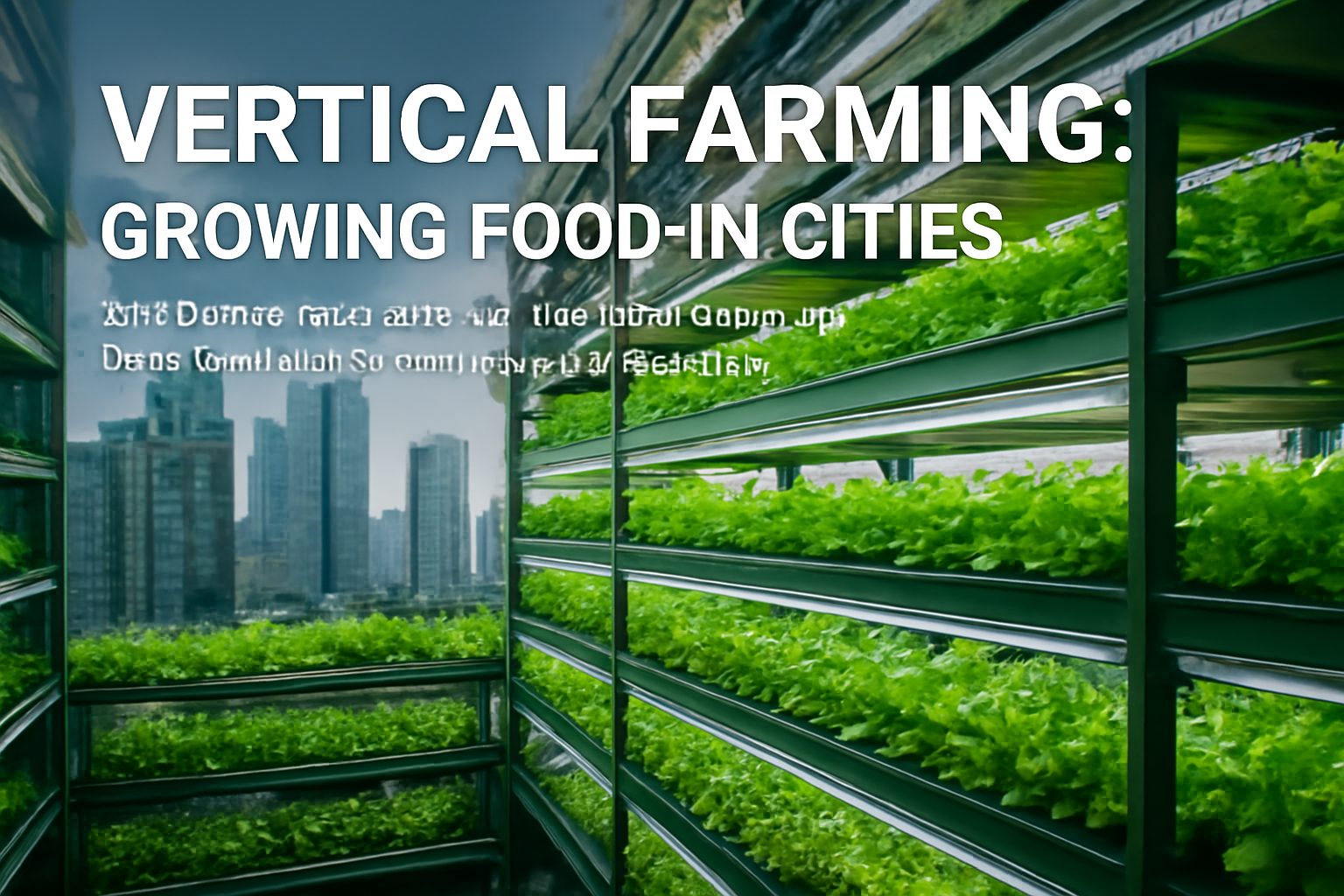Location
Mount Vernon, WA 98274
Location
Mount Vernon, WA 98274

As cities grow, the challenge of sustainable food production becomes more pressing. Vertical farming offers a promising solution, utilizing innovative technologies to grow food in urban environments while reducing environmental impact. This article explores how vertical farms are reshaping our approach to agriculture in cities.
Urbanization is rapidly changing the landscape of food production. With more than half of the world’s population now living in cities, the need for sustainable food sources is becoming increasingly critical. One innovative solution gaining traction is vertical farming, a method of growing crops in stacked layers, often integrated into urban structures. This approach not only maximizes space but also minimizes the environmental footprint associated with traditional farming.
Vertical farms utilize controlled-environment agriculture (CEA) technology, which includes hydroponics, aeroponics, and environmental control systems. By growing plants indoors, these farms can reduce the reliance on pesticides and fertilizers, leading to healthier produce. Moreover, they can significantly decrease water usage-some systems use up to 90% less water than conventional farming.
Recent developments in vertical farming technology have made it more accessible and efficient. For instance, the integration of artificial intelligence and machine learning allows for precise monitoring of plant needs, optimizing growth conditions and increasing yield. In cities like New York and Tokyo, vertical farms are popping up in repurposed warehouses and high-rise buildings, bringing fresh produce closer to consumers and cutting down on transportation emissions.
Furthermore, vertical farms can be designed to utilize renewable energy sources, such as solar or wind power, further enhancing their sustainability. In addition to providing food, these urban farms can contribute to local economies by creating jobs and promoting community engagement around food production.
However, challenges remain. The initial investment for setting up a vertical farm can be high, and the technology is still evolving. Additionally, there is a need for public awareness and acceptance of this new farming method. Educational initiatives can play a crucial role in informing communities about the benefits of vertical farming and how it can contribute to food security.
In conclusion, vertical farming represents a significant shift in how we approach food production in urban areas. As cities continue to expand and the demand for sustainable practices grows, this innovative agricultural method could play a vital role in ensuring that urban populations have access to fresh, healthy food while minimizing environmental impact. By embracing vertical farming, we can pave the way for a more sustainable future in food production.